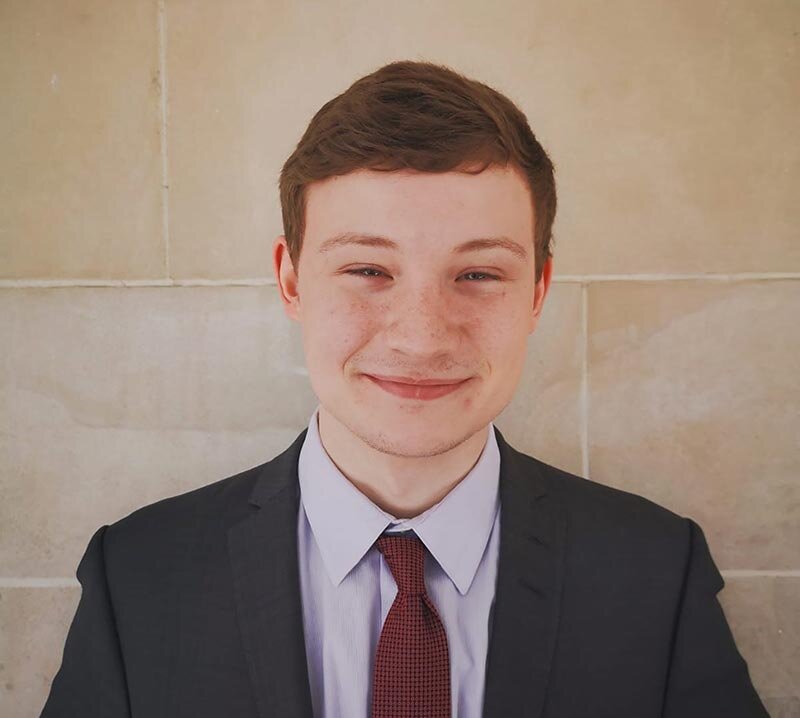Phillip Christoffersen
Computer Science Specialist, AI Focus
Statistics Major
Mathematics Minor
Trinity College
Why did you choose U of T for your undergrad?
Ever since high school, I have had my eyes set on a career in academia, so I wanted to enrol in a program that would provide a strong foundation for a wide range of fields that interested me: computer science, mathematics, statistics, economics, and music composition, among others. In my view, building up that broad foundation is a primary function of an undergraduate degree, so U of T felt like a natural next step after high school.
What inspired you to study computer science?
Seeing the results of advances in computation across a wide array of fields, particularly in artificial intelligence and data science, had already piqued my interest before I set foot on campus. However, what really sold me on the field were the introductory computer science classes, which contextualized the discipline and gave me a better sense of its theory and practice, as well as an appreciation for the breadth of ideas and approaches that comprise it. Since then, I’ve been hooked, particularly (but not exclusively) to topics in artificial intelligence, statistical learning, and theoretical computer science.
Who or what at U of T influenced your education the most?
My professors. Given my interest in an academic career, I have always been interested in how a great teacher gives a lecture, runs a course, or explains a concept. It is a hard thing to get right, and every great professor will inject their own personality and manner into course content, however technical or objective it is. I have also been deeply influenced by the established and lively research community in computer science at U of T, often consisting of those very same professors, making the content covered in coursework (particularly upper-year courses) seem all the more current and relevant.
How did you get involved at U of T outside of your coursework?
One way that I got involved was, funnily enough, through more coursework: specifically, I have worked as a teaching assistant at U of T since my second year, having worked in MAT137 (“Calculus with Proofs”) for several years, and in CSC263 (“Data Structures and Analysis”) this past term. More recently, I have been increasingly active in the research community at U of T, working primarily in the lab of Professor Sheila McIlraith on a variety of theoretical and practical problems in artificial intelligence. More informally, I have always made sure to surround myself with the most interesting peers I knew of, both inside and outside of computer science, and we would always have the most fascinating conversations during our breaks.
What U of T memory do you treasure the most?
Probably one of the long study sessions that invariably came with midterm season, although it’s hard to pick one. I always gained so much insight from discussing ideas with peers, and from the lively (sometimes downright passionate) debates that would ensue when our views would clash. Many of my closest friendships were forged after a long night struggling with challenging ideas. Common struggle is probably one of the best conversation starters out there.
If you could go back and give yourself one piece of advice at the start of your undergraduate degree, what would it be?
“Don’t be afraid to admit what you don’t know: better still, seek it out.” Pretty much every time that I have made a mistake of significance in my life, it was on the basis of false knowledge, due to either overconfidence or the fear of being wrong. It is a common problem, and I’ve seen it a lot as a student and a teaching assistant, but it is a bad approach to learning and can be very damaging.
Is there a lesson you learned as an undergraduate student that you’ll take with you moving forward?
My previous answer, seeking out what you don’t know, definitely also applies here. Another lesson I will take from U of T is equally simple: most of what is worthwhile in life can only come with hard work. And this doesn’t apply just to academics or your career: keeping up good personal relationships, maintaining your own sense of purpose, and educating yourself about the state of the world, requires active upkeep and constant effort, and success today at any such task doesn’t mean success tomorrow.
What’s next for you?
I’m very excited to say that I will be starting a doctoral program in computer science at the Massachusetts Institute of Technology, starting this coming fall. I hope to continue my exploration of topics at the cutting edge of artificial intelligence and theory, and to refine my own ideas and research agenda in the academic sphere.
This Q&A has been edited for clarity and length.


